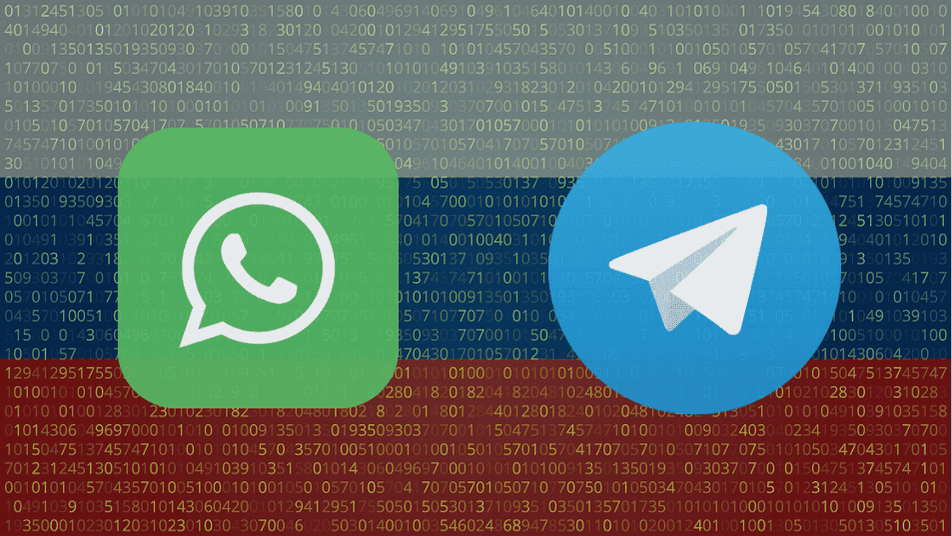
Russian authorities have begun partially restricting voice call functionality on Telegram and WhatsApp, citing their widespread use in phone scams, extortion schemes, and recruitment for sabotage and terrorist activities.
The action, confirmed by Russia's Federal Service for Supervision in the Sphere of Telecom, Information Technologies and Mass Communications (Roskomnadzor), follows pressure from law enforcement agencies and a wave of public complaints about fraud conducted through these platforms. According to a TASS report citing information from the watchdog, only voice call features are being targeted; messaging and other functions on both services remain unaffected for now.
Roskomnadzor claims the move is based on operational data from Russian law enforcement bodies and aligns with ongoing efforts to disrupt criminal infrastructure. Authorities accuse the operators of the two foreign messengers, Telegram, founded by Russian entrepreneur Pavel Durov, and WhatsApp, owned by US-based Meta Platforms, of failing to respond to repeated demands to introduce meaningful safeguards against misuse.
Telegram and WhatsApp are among the most popular encrypted messaging apps in Russia, used by tens of millions of people for both personal and business communication. Their end-to-end encryption and relatively unrestricted voice services have made them attractive alternatives to traditional telecom operators, especially in a market where surveillance and censorship are common concerns. However, the Russian government argues that this very popularity has allowed malicious actors to evade domestic anti-fraud mechanisms.
Since early 2024, Russia has operated the “Antifraud” system, a nationwide initiative designed to block spoofed phone calls within conventional telephony infrastructure. Officials now say that as a result of Antifraud's success, scammers have shifted to using encrypted voice calls in foreign messaging apps, where domestic tools have limited reach. Roskomnadzor claims this migration has contributed to a rise in social engineering attacks, untraceable calls, and cross-border coordination of criminal acts.
Authorities have not provided specific technical details about how the partial restriction is being implemented, nor have they indicated whether the block targets both VoIP traffic and app-level functionality. Based on similar past enforcement actions, like a recent one against the Viber messenger app, restrictions may involve throttling traffic at the network level or instructing ISPs to degrade service quality for the targeted features.
Roskomnadzor's statement makes clear that the government expects platform providers to comply with local regulations aimed at user safety, something neither Telegram nor WhatsApp has formally agreed to. Telegram, in particular, has a long history of resisting government censorship demands, while WhatsApp has faced periodic criticism for its opaque moderation policies and lack of compliance with Russian data localization laws.
While the current measure is labeled as “partial,” it signals a continued tightening of Russia's digital sovereignty posture and raises questions about the future of encrypted communications in the country. Those looking to bypass blocks in Russia should start by trying one of these VPNs.





the criminal group ruling in russia stole and spent all the country’s money on their war in ukraine. on tv they could teach the population to fight scammers, but on russian tv there is only criminal propaganda and collecting money from the population for the treatment of sick children. putin and his gang of terrorists traded the future of russians for their own benefit, the ban on messengers is primarily a ban due to the impossibility of secretly reading other people’s texts and listening to calls. putin is a cancerous tumor